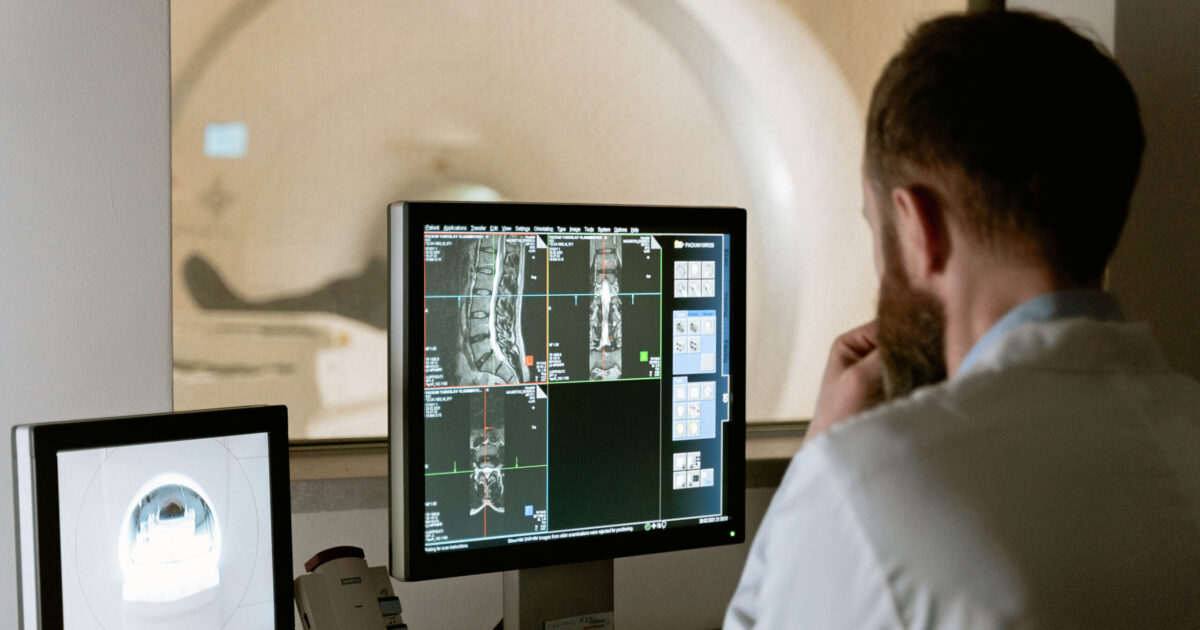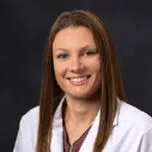Professional certifications play a crucial role in the advancement of allied healthcare professionals. They not only validate an individual’s expertise and competence in their field but also open doors to enhanced career opportunities and growth. By obtaining these certifications, allied health workers also demonstrate their commitment to maintaining high standards of care and staying abreast of evolving medical practices. Consider the following six benefits of obtaining and maintaining certification in your field to determine their worth, then explore in-demand allied health specialties and the relevant certifications for these roles.
6 Reasons Why Professional Certifications Are Important for Allied Health Professionals

1. Improved Job Prospects through Enhanced Quality of Care
Professional organizations or certifying bodies award allied health certifications. These organizations uphold professional excellence and practice standards, ensuring those who earn certification have adequate knowledge and skills in their areas of expertise. Patients may feel more confident in receiving an enhanced quality of care and improved outcomes knowing their provider has earned professional certification. Many hospitals and healthcare organizations are transitioning to only hiring certified allied health professionals because it likely impacts the quality of patient care and safety, potentially improving your job prospects.
2. Increased Professional Credibility
Possessing an allied health certification fosters competency and increases patient trust, enhancing your professional credibility. The American Board of Physician Specialties states, “Without trust and credibility, the provider-patient relationship can unravel.” Part of your credibility comes from holding a certification from a professional organization with a vested interest in patient outcomes and practice standards.
Your credibility starts before the patient ever enters the doors of the healthcare facility. Many patients research their healthcare team and providers before scheduling appointments. Expertise, experience and credentials are major factors they consider when choosing their healthcare professionals.
Certifications also reinforce professional and ethical practices, building trust amongst healthcare team members as it ensures competency. Physicians are likely to entrust the care of their patients with certified allied health professionals since they’ve proved their competency.
3. Enhanced Career Advancement Opportunities
According to the Bureau of Labor Statistics (BLS), from 2022 to 2032, employment in healthcare is expected to grow faster than the average for all occupations, with around 1.8 million openings annually within all healthcare occupations combined. The National Center for Health Workforce Analysis projects shortages in crucial allied health fields through 2036. These shortages, along with technological advances and enhanced focus on specialized care, spur fast-growing allied health careers with numerous career advancement opportunities.
As noted on the BLS’s website, some potential in-demand allied health careers include diagnostic medical sonographers with an expected job growth of 10%, medical assistants (MAs) with a 14% projected job growth and speech-language pathologists with a 19% growth from 2022 to 2032.
As the job outlook grows, so do the possible job openings and advancement opportunities. Certification can increase your likelihood of promotions to highly specialized roles as it demonstrates your initiative and commitment to your field.
4. Improved Commitment to Staying Current in a Rapidly Evolving Field
Most certifications require you to stay current with new research and evidence-based practices through continuing education to maintain your credentials. Since most certifications remain valid for a limited amount of time before required renewal, you must meet these requirements to keep your certification.
Certifying organizations mandate continuing education hours for renewal to ensure you stay up-to-date on the latest healthcare practices for your area of expertise. This requirement promotes continued professional development and your commitment to lifelong learning as the healthcare field is ever-changing.
5. Heightened Earning Potential

Holding a certification often increases your earning potential even without a promotion. According to Vivian’s staff allied health salary data pulled on November 20, 2023, certified MAs earned an average of $19.58 per hour, with some earning as much as $29 per hour. The significant difference between average and max salaries could reflect the difference between certified and uncertified MAs. Other specialties that don’t require certification will potentially show a similar salary range, exhibiting that certified individuals frequently have a higher earning potential than non-certified individuals.
The following table highlights some of Vivian’s top-paying staff allied health specialties on November 20, 2023, and their max pay:
| Allied Health Specialty | Max Hourly Salary |
| Physician Assistants | $87 |
| Physical Therapists | $64 |
| Occupational Therapists | $62 |
| Social Workers | $54 |
| Perfusionists | $45 |
In comparison, travel allied health salaries often pay even more than staff roles. Allied health certifications can also improve your chances of landing lucrative travel roles, as they validate your knowledge and skills, making you a more attractive candidate. As of November 20, 2023, Vivian’s highest-paying weekly allied health travel contracts included some of the specialties featured in the following table.
| Allied Health Specialty | Max Weekly Travel Salary |
| Medical Physicists | $7,939 |
| Perfusionists | $6,828 |
| Dosimetrists | $3,765 |
| Echocardiographers | $3,082 |
| Cardiac Catheterization Technologists | $3,370 |
Most of the staff and travel positions in these tables require certification in your field of expertise, implying that certified positions may have higher earning potential than those that require certification.
6. Achieved Legal and Regulatory Compliance
Some states require certification in your area of expertise to hold a license and practice within the state, while other allied health specialties don’t require certification for licensure. Whether a role requires a specific credential depends on your state’s laws and scope of practice guidelines. If your state does require you to obtain and maintain a certification for licensure, you must uphold this requirement, or you face consequences for non-compliance.
Potential consequences might include losing your license and the inability to practice within that state. If you move to a different state and you didn’t uphold another state’s compliance requirements, you could potentially be ineligible for licensure in the new state, as well Additionally, if your current employer requires a certification for your job, you could lose it and be marked as not rehireable. Healthcare facilities can be fined or lose their specific accreditations if they don’t maintain requirements. Ensure you’re always knowledgeable about and current on your state’s guidelines, especially for allied health travel jobs.
In-Demand Allied Health Professionals and Relevant Certifications

Allied health professionals can choose from various specialties, and most have relevant certifications. Depending on your chosen specialty, it may impact the number of jobs available as some specialties are more in demand than others. Reviewing data collected from Vivian in late November 2023, we highlighted some specialties with the most staff allied health job listings in the following table.
| Allied Health Specialty | # of Jobs |
| Radiology Technologist | 267 |
| CT Technologist | 201 |
| Ultrasound Technologist | 125 |
| Certified Surgical Technologist | 114 |
| Respiratory Therapists | 86 |
Should you be interested in pursuing one of these roles, valuable certifications in these fields include the following:
Radiology Technologists:
- Mammography Registered Technologist
- Radiation Therapy Registered Technologist
- Vascular Sonography Registered Technologist
CT Technologists:
- Computed Tomography Registered Technologist
- Nuclear Medicine Technology Certification Board Certification in Computed Tomography
Ultrasound Technologists:
- Sonography Registered Technologist
- Registered Diagnostic Medical Sonographer – Pediatric Sonography
Surgical Technologists:
Respiratory Therapists:
- Certified Respiratory Therapist
- Registered Respiratory Therapist (RRT)
- RRT Neonatal and Pediatric Care Specialist
This list isn’t all-inclusive of the available certifications for these and the many other specialties available.
Choosing the Right Allied Health Certifications
Depending on your specialty, there may be many credentialing agencies. However, some agencies aren’t recognized by every state as valid, so ensuring their legitimacy is crucial. Research approved credentialing organizations related to your expertise by visiting your state’s medical board and/or occupational licensure website. Some top organizations offering several professional allied health certifications include the following:
- American Board of Medical Physics
- American Registry for Diagnostic Medical Sonography
- American Registry of Radiologic Technologists
- Cardiovascular Credentialing International
- National Commission on Certification of Physician Assistants
RELATED: Comprehensive Guide to Allied Health Certifications
The importance of professional certifications in allied health can’t be overstated. Certifications are essential components in ensuring high-quality patient care, fostering professional development and enhancing the credibility and reputation of these vital healthcare professionals. As the healthcare landscape continues to evolve, professional certifications will remain instrumental in equipping allied health professionals with the necessary skills and knowledge to excel in their fields. Many healthcare organizations promote certifications and will reimburse your costs, so you typically have nothing to lose and a lot to gain, including enhanced career advancement opportunities and earning potential.
Dive into the allied health certifications available for your specialty using Vivian Health’s Certification Guides.









